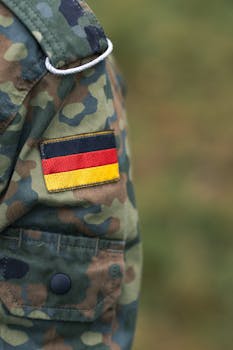+17162654855
+17162654855
DMV Publication News serves as an authoritative platform for delivering the latest industry updates, research insights, and significant developments across various sectors. Our news articles provide a comprehensive view of market trends, key findings, and groundbreaking initiatives, ensuring businesses and professionals stay ahead in a competitive landscape.
The News section on DMV Publication News highlights major industry events such as product launches, market expansions, mergers and acquisitions, financial reports, and strategic collaborations. This dedicated space allows businesses to gain valuable insights into evolving market dynamics, empowering them to make informed decisions.
At DMV Publication News, we cover a diverse range of industries, including Healthcare, Automotive, Utilities, Materials, Chemicals, Energy, Telecommunications, Technology, Financials, and Consumer Goods. Our mission is to ensure that professionals across these sectors have access to high-quality, data-driven news that shapes their industry’s future.
By featuring key industry updates and expert insights, DMV Publication News enhances brand visibility, credibility, and engagement for businesses worldwide. Whether it's the latest technological breakthrough or emerging market opportunities, our platform serves as a bridge between industry leaders, stakeholders, and decision-makers.
Stay informed with DMV Publication News – your trusted source for impactful industry news.
Materials

**
Germany's defense industry is facing immense pressure to dramatically increase its production capacity, a direct response to the ongoing war in Ukraine and the country's commitment to bolstering its military capabilities. Defense Minister Boris Pistorius recently issued a stark call to action, demanding that German arms manufacturers significantly ramp up production to meet the nation's ambitious defense goals and NATO targets. This urgent plea highlights the significant challenges facing Germany as it seeks to modernize its armed forces and strengthen its role within the transatlantic alliance. The speed and scale of this required expansion are unprecedented, prompting questions about the feasibility and potential bottlenecks in the process.
Germany's commitment to increasing its defense spending to 2% of GDP, a key NATO target, necessitates a substantial expansion of its domestic arms industry. This isn't merely about acquiring new weapons systems; it requires a complete overhaul of the production pipeline, from raw materials sourcing to final assembly and delivery. The current situation reveals a significant gap between Germany's stated ambitions and its current production capabilities. This shortfall is not only concerning for Germany's own security but also for its role in supporting Ukraine and maintaining stability within Europe.
Pistorius's call to arms manufacturers focuses on several key areas requiring immediate attention:
Despite the urgency, the German defense industry faces significant hurdles in meeting the government's demands. These include:
Germany is not alone in facing these challenges. Many European nations are seeking to enhance their defense capabilities, resulting in increased demand for weapons and ammunition. International cooperation and collaboration within the European Union and NATO will be essential in coordinating efforts, sharing resources, and mitigating supply chain risks. Joint procurement projects and technology sharing can help leverage economies of scale and accelerate the modernization process.
Meeting the ambitious goals set by the German government will require a long-term commitment and a coordinated effort across government, industry, and academia. This includes not only substantial investment in production capacity but also investment in workforce development, streamlining bureaucratic processes, and fostering international partnerships. The success of this endeavor is not just crucial for Germany's national security but also for its role within the European and transatlantic security architecture. The coming years will be critical in determining whether Germany can overcome these challenges and successfully modernize its armed forces. The success or failure will significantly impact Germany's security and its standing within NATO. The pressure is on, and the world is watching. The question remains: Can Germany's arms industry meet the challenge?